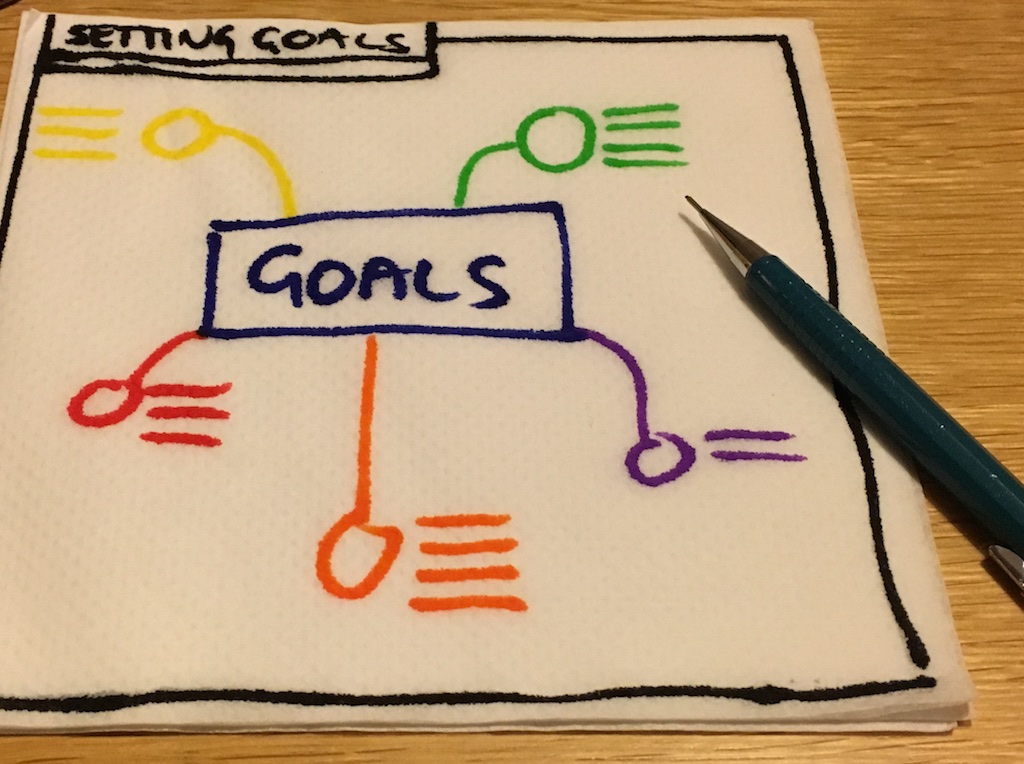Setting Goals for the Year
Many self-help and personal improvement books suggest working out life goals and using them to drive all your do on a journey to self-actualisation. One book I read even had a practical technique for doing this: it suggested writing your own obituary/eulogy. I’ve never found this easy (setting goals or writing eulogies). I don’t have a life plan. I haven’t even filled in all 40 slots on my 40 things before I’m 40 bucket list. What I can achieve is a high-level plan for the year to help me get more done and here is how:
Get more done by being intentional
It is easy to get to the end of a busy year and feel like you have not achieved all you wanted to. There were plans to go walking along the coast that never got made, friends to keep in touch with that you haven’t, and let’s not mention the dusty guitar sitting in the corner. I have loads of good intentions but if I am not intentional about them they lose out to the urgent or the exciting (or candy crush). To prevent my aspirations from unintentionally slipping away I capture them so that I can reason with them. The first year I actually wrote down some “life goals” I created a mind map in the back of my diary. There was no plan to accompany it. Some f the goals were vague and some specific. I’d frequently look at my goals and this often spurred progress as I reminded myself what I wanted to archive. At the end of the year, I had not achieved all I set out to do but I did get more done than in previous years. I’ve found that the simple act of writing down goals brings to me a clarity. That clarity helps to drive activity.

Determine goal categories
It is likely you have goals for your career, desires for your family and possibly also sporting aspirations. Start by creating a mind map of the areas you want to set goals for. My goal categories are home & family, career development, personal development, self and well-being, and sports. You may also have musical goals, social goals, travel goals, whatever groupings make sense. You may not instinctively think of groupings so this can be iterative with the next step. I was not expecting a sports category but this year I know I wanted to do some obstacle course runs with friends, I wanted to try park run, I wanted to get some scuba diving in so it made sense to group them

Articulate your goals
I’m not a goal setting purist and I’m not going to suggest you create SMART goals for yourself (unless you want to). I’ve found that the simple act of writing down goals brings to me a clarity. If you are struggling here think about what would bring you happiness, or a sense of achievement, or a lasting significance. Still struggling? Is there anywhere you want to visit, anything you want to learn, anything you want to try? Some goals might be really hard to specify – like wanting to be a good spouse/parent. Don’t worry about that for now, just write down what you have.
Sanity Check your goals
Scan through your goals to build a feel for the balance between the categories. It is not important or even desirable to have all categories of goals balanced but it is useful to see if there are big pushes in multiple areas as this might indicate over stretching. One year my main goal was to lose 30kg of weight. I realised to do this I’d need to have less ambitious work goals as growth at work might lead to working extra hours which would take away time from cooking and exercising. If you achieve 3/4 of the goals would you look back at the end of the year and consider it a good year? If not you might want to identify some additional goals. When you look through the goals do you think it will be a stretch to get it all done? Great – challenge is good – it is where we grow.
Commit to your goals
Once your goals are articulated it is time to commit to them. I like to cement my commitment early to help drive action. This could be spending on a new pair of running shoes and a ticket for a 1/2 marathon or it could be announcing to colleagues I intend to apply for promotion. It might be as simple and as private as a couch to 5k programme stuck to the fridge. I like constant reminders so my goals go in my Bullet Journal where I’ll periodically look over them and assess if I am doing enough to move closer to them.
Some goals are too big and too challenging to just write down and then magically happen. Sometimes more is needed than a concrete goal, good intentions and hard work. I’ll write separately on how to plan goals.
To conclude
Having goals for the year ahead is a great way of helping you achieve the things you would love to get done. Planning against all your aspirations will help you make informed trades about how you invest your time in shaping your future. This is important as great things are never achieved without hard work and at any given moment without that bigger picture view 30 minutes on Netflix or candy crush is likely to be more appealing than hard work.
For an interesting visual perspective on a life in weeks have a look at this wait but why blog.


Pingback: Goal Planning: techniques for delivering against life goals
Pingback: Don’t Make New Year’s Resolutions – Differently Wired
Pingback: How to achieve your goals – Differently Wired